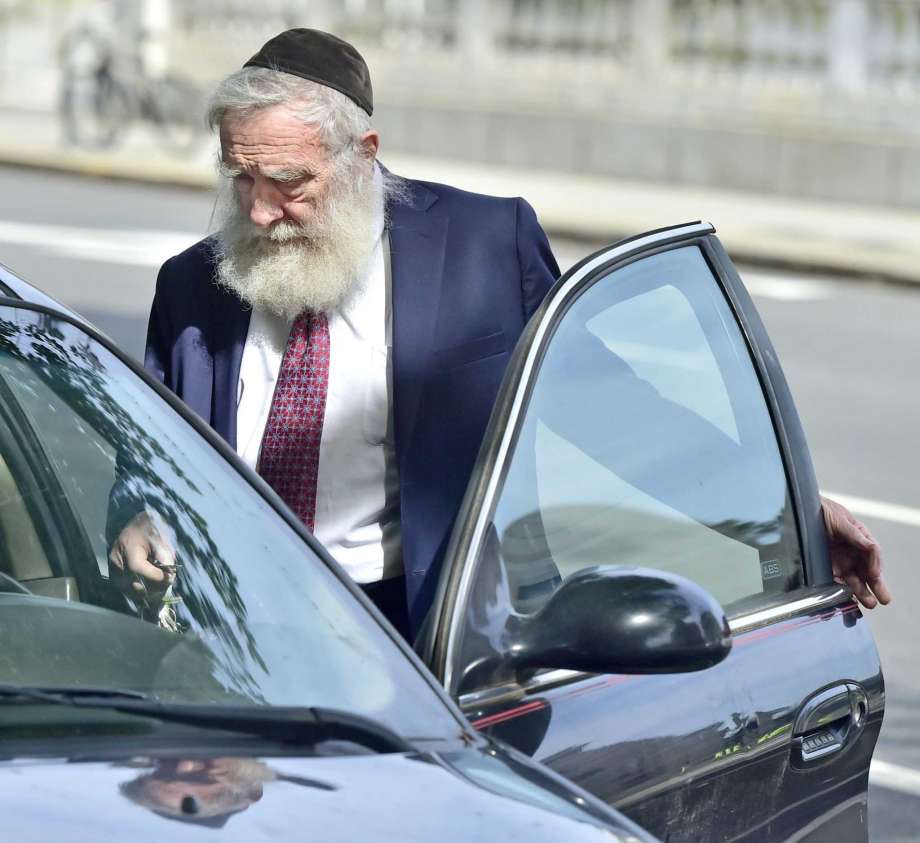Opinion: Damage from Greer Case Extends to Local Community
By Steven R. Wilf
Where is the community in the Rabbi Daniel Greer child-rape case? Greer was convicted on four charges pertaining to risk of injury to a minor. According to testimony, Greer repeatedly engaged in sex with Eliyahu Mirlis, a student in his New Haven school, and propositioned with offensive touching another student. The abuse began when Mirlis was 14 years old. Even more devastating was the 2017 civil trial where Greer was found liable with a $15 million judgment for these actions. In the civil case, evidence was presented that Greer abused another student over a period of years. As in most criminal trials, the focus was largely on the perpetrator and the victim. Yet the Jewish community loomed unexpectedly large. Was it an enabler that provided the cultural fabric to allow the sexual abuse to proceed? Did the particular fraught power dynamic between rabbi and student impede reporting by the victim? And was the tightly knit character of Orthodox Jewish communities critical in allowing the years of sexual exploitation to occur without being detected? Expert testimony by forensic psychologist Gavriel Fagan did as much to exoticize the Orthodox Jewish community as it did to make its world more transparent. The question that loomed over the trial was why Mirlis did not report the sexual abuse earlier and why he maintained contact with Greer after his marriage — and even honored him at his son’s circumcision. Much was made of the charismatic authority of rabbis, religious sexual repression and the Orthodox Jewish insistence upon remaining isolated from the outside world. But this is a caricature. Greer’s own school fostered the teaching of texts that allowed students to find their own answers to questions rather than rely upon an authority figure. Chastity is not necessarily repression. Jewish tradition celebrates sexuality within marriage. And Orthodox Jews are often urban and professional — well-integrated into civil society. Nothing inherent in this particular set of beliefs enables the sexual exploitation of minors. Instead, the most striking feature of Greer’s abuse was that he chose victims who he could dominate because their families were fractured — as in the case of Mirlis — or poorly equipped to intervene. The community is a victim rather than an enabler. Judaism highly values a sacred bond between teacher and student. The House of Study is considered more sanctified than a place of prayer. Yet both the relationship and the place — since Greer often engaged in sexual acts on school premises — were repeatedly violated. There is a strong traditional belief that wrongful deeds committed by someone clearly identified as Jewish constitutes a desecration of God’s name. The reputational damage of a sex abuse trial impacts upon a community as well as an individual. Charitable funds were raised to support a communal institution. As a result of the uncontrolled and largely unknown behavior of an individual, the building might in a few weeks be transferred to pay the cost of a civil judgment. The contributions of others — often gifts made through hard work, generosity and a commitment to shared values — will be lost. How do we grapple with the cost unfairly imposed upon a community? Designed primarily to rectify harms to victims of violence, the American criminal justice system poorly addresses other injuries. It largely ignores the collateral damage to families caused by high incarceration rates, the loss to cities of useful citizens when the stigma of a former felony serves as a barrier to reintegration, or the unraveling of longstanding social relations if a neighborhood has to relocate due to the release of toxic waste. Nor have courts paid sufficient attention to the impact of shuttered parochial schools or reductions in the support of the poor when a cash-strapped Catholic diocese reassigns funds to pay damages for an abusive priest. What might Greer owe the Jewish community for the harms imposed? Should there be an act of contrition? Statements of remorse are fairly common at criminal sentencing. They are believed to foster the offender rehabilitation, restore the social fabric damaged by criminal acts and provide psychological healing to both the offender and the victim. What will Greer say at his Nov. 20 sentencing hearing? Yet contrary to the common wisdom, recent social science research suggests that judges often find such statements insincere. Rather than reducing the length of incarceration, an apology seen as disingenuous might be detrimental to a convicted wrongdoer. Greer faces a particular problem of demonstrating authentic regret since he has sought delays in the payment of civil damages. Information about the civil case — which was carefully kept out of the criminal trial — can freely enter the sentencing proceedings. But Greer does have the option of drawing upon a traditional Jewish vocabulary of contrition during the weeks prior to sentencing. He has the opportunity to address the damage caused the New Haven Jewish community, to frame his failings as a broader breach of communal trust, and to make a statement of sincere regret. During the period from Rosh Hashanah until the end of the holiday of Sukkot, religious Jews are engaged in retrospection. Will Greer use this chance to apologize? If not, the sentencing judge might well wonder whether he truly repudiates his crimes.
|
.
Any original material on these pages is copyright © BishopAccountability.org 2004. Reproduce freely with attribution.
